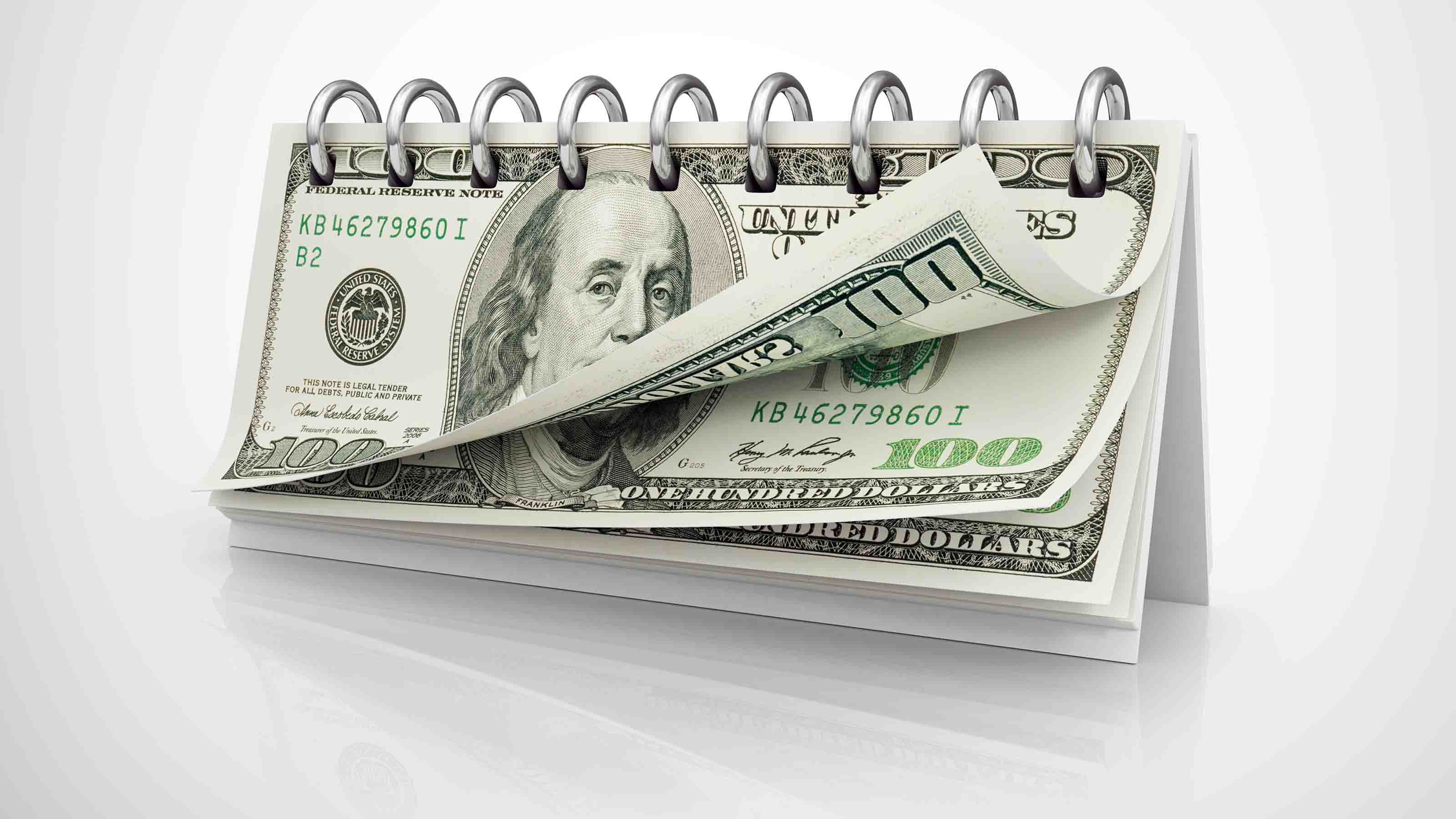Go Ahead, Reach for Yield
The best bets are in arcane areas such as commercial mortgage-backed securities, nonbank business lending and structured credit.


Profit and prosper with the best of Kiplinger's advice on investing, taxes, retirement, personal finance and much more. Delivered daily. Enter your email in the box and click Sign Me Up.
You are now subscribed
Your newsletter sign-up was successful
Want to add more newsletters?

Delivered daily
Kiplinger Today
Profit and prosper with the best of Kiplinger's advice on investing, taxes, retirement, personal finance and much more delivered daily. Smart money moves start here.

Sent five days a week
Kiplinger A Step Ahead
Get practical help to make better financial decisions in your everyday life, from spending to savings on top deals.

Delivered daily
Kiplinger Closing Bell
Get today's biggest financial and investing headlines delivered to your inbox every day the U.S. stock market is open.

Sent twice a week
Kiplinger Adviser Intel
Financial pros across the country share best practices and fresh tactics to preserve and grow your wealth.

Delivered weekly
Kiplinger Tax Tips
Trim your federal and state tax bills with practical tax-planning and tax-cutting strategies.

Sent twice a week
Kiplinger Retirement Tips
Your twice-a-week guide to planning and enjoying a financially secure and richly rewarding retirement

Sent bimonthly.
Kiplinger Adviser Angle
Insights for advisers, wealth managers and other financial professionals.

Sent twice a week
Kiplinger Investing Weekly
Your twice-a-week roundup of promising stocks, funds, companies and industries you should consider, ones you should avoid, and why.

Sent weekly for six weeks
Kiplinger Invest for Retirement
Your step-by-step six-part series on how to invest for retirement, from devising a successful strategy to exactly which investments to choose.
With bank rates and bond yields collapsing again, investors are embracing unconventional income securities priced to yield 6%, 8% or even 10%. Yes, spreads between Treasury yields and the yields you get from many such investments—including high-paying partnerships, closed-end funds, mortgage real estate investment trusts, specialty lenders and business holding companies—look dangerously wide, oftentimes six or eight percentage points. In theory, such a big gap implies that a recession is in the offing and will send investors running to higher-quality assets, or even cash. High-yield investments of all kinds got slammed in 2008.
But I often dissent from the orthodox view. I believe that 2019's sinking Treasury yields, which magnify the spreads on everything else, are not a sign of economic peril. Rather, Treasury rates are puny due to the timid Federal Reserve and the $15 trillion of foreign government debt that carries negative yields. U.S. bonds have transitioned from being reserves for domestic banks and insurers and a haven for everyday savers to being the world's lockbox, a global repository where anyone can hold almighty U.S. dollars and earn a positive yield.
New ways to measure risk. Because Treasury debt is caught in these disruptive, rule-breaking financial times, investment pros have become open to other ways of weighing investments besides the yield spread over T-bonds. Creditworthiness and business prospects take top billing. Those can be tough for you and me to pin down, and ratings agencies can get them wrong—but the new approach produces trading and investment opportunities. "Just because something yields 8% doesn't mean it is high risk," says Christopher Zook, CEO of CAZ Investments.
From just $107.88 $24.99 for Kiplinger Personal Finance
Become a smarter, better informed investor. Subscribe from just $107.88 $24.99, plus get up to 4 Special Issues

Sign up for Kiplinger’s Free Newsletters
Profit and prosper with the best of expert advice on investing, taxes, retirement, personal finance and more - straight to your e-mail.
Profit and prosper with the best of expert advice - straight to your e-mail.
Zook says that sound borrowers are paying seven percentage points above three-month cash rates to short-term lenders and private loan pools, because big banks are de-emphasizing traditional handshake corporate lending.
How can ordinary investors get in on these deals? The best ideas are in arcane areas such as commercial mortgage-backed securities, nonbank business lending and "structured credit," which packages loans, mortgages and receivables into interest-bearing securities backed by those assets. The point is that these borrowers aren't in trouble. They voluntarily pay up to borrow, and then the market's recession fears plump up yields by another full point or two. Before investing, I do insist that you scour disclosures to look mainly for secured credit and avoid dealings in oil and gas and emerging markets. A multi-industry, consumer-focused, U.S.-centric strategy is best. The following are essentially investment or holding companies, with portfolios of loans or businesses. But their stocks trade like any other.
Apollo Investment (symbol AINV, $16, yield 11.2%) shares have returned 41% this year, although they still trade at a discount to the per-share value of Apollo's portfolio of debt securities. (Prices and other data are as of September 30.) Apollo's loans and airplane leases are mostly secured, and almost all are floating-rate. Its rival lender Ares Capital (ARCC, $19, 8.6%) has a 28% return so far in 2019 and has virtually eliminated subordinated debt (which ranks behind other debt in the event of default) from its portfolio because Ares can still collect an overall 10.5% on better-quality assets. The shares trade a tad above the $17.27 per-share net asset value of Ares' underlying holdings—but that's acceptable. Compass Diversified Holdings (CODI, $20, 7.3%) owns businesses rather than lending to them and is up 69% for the year to date. Yet its yield remains robust, and it trades close to its net asset value.
In a future column, I'll talk about debt pools of much shorter duration that yield about 4% and are suitable substitutes for ultra-short debt funds or cash.
Profit and prosper with the best of Kiplinger's advice on investing, taxes, retirement, personal finance and much more. Delivered daily. Enter your email in the box and click Sign Me Up.

Kosnett is the editor of Kiplinger Investing for Income and writes the "Cash in Hand" column for Kiplinger Personal Finance. He is an income-investing expert who covers bonds, real estate investment trusts, oil and gas income deals, dividend stocks and anything else that pays interest and dividends. He joined Kiplinger in 1981 after six years in newspapers, including the Baltimore Sun. He is a 1976 journalism graduate from the Medill School at Northwestern University and completed an executive program at the Carnegie-Mellon University business school in 1978.
-
 How Much It Costs to Host a Super Bowl Party in 2026
How Much It Costs to Host a Super Bowl Party in 2026Hosting a Super Bowl party in 2026 could cost you. Here's a breakdown of food, drink and entertainment costs — plus ways to save.
-
 3 Reasons to Use a 5-Year CD As You Approach Retirement
3 Reasons to Use a 5-Year CD As You Approach RetirementA five-year CD can help you reach other milestones as you approach retirement.
-
 Your Adult Kids Are Doing Fine. Is It Time To Spend Some of Their Inheritance?
Your Adult Kids Are Doing Fine. Is It Time To Spend Some of Their Inheritance?If your kids are successful, do they need an inheritance? Ask yourself these four questions before passing down another dollar.
-
 The Most Tax-Friendly States for Investing in 2025 (Hint: There Are Two)
The Most Tax-Friendly States for Investing in 2025 (Hint: There Are Two)State Taxes Living in one of these places could lower your 2025 investment taxes — especially if you invest in real estate.
-
 The Final Countdown for Retirees with Investment Income
The Final Countdown for Retirees with Investment IncomeRetirement Tax Don’t assume Social Security withholding is enough. Some retirement income may require a quarterly estimated tax payment by the September 15 deadline.
-
 Why Investors Needn't Worry About U.S. Credit Downgrade
Why Investors Needn't Worry About U.S. Credit DowngradeFitch Ratings The United States saw its credit rating downgraded for just the second time in history, but experts aren't worried about the long-term damage to stocks.
-
 Income-Investing Picks for a Recession
Income-Investing Picks for a RecessionInvesting for Income Some consequences of an economic downturn work to the benefit of fixed-income investors. Here are three fund ideas that fit the bill.
-
 Dogs of the Dow Are 2022's Best in Show
Dogs of the Dow Are 2022's Best in Showdividend stocks Some of the best investments for income investors in a volatile 2022 have come from the Dogs of the Dow.
-
 Bond Values in a Volatile Market
Bond Values in a Volatile MarketInvesting for Income While the market's instability may not be over just yet, the latter half of the year should be less daunting – and possibly more rewarding – for investors.
-
 Should You Buy Bonds Now? What To Consider
Should You Buy Bonds Now? What To Considerbonds The fixed-income market has been turned on its head in recent years, but there are still opportunities for those looking to buy bonds again.
-
 Dividend Dates: A Beginner's Guide
Dividend Dates: A Beginner's Guidedividend stocks Everything you need to know about ex-dividend dates, dividend announcements and other parts of the dividend calendar.